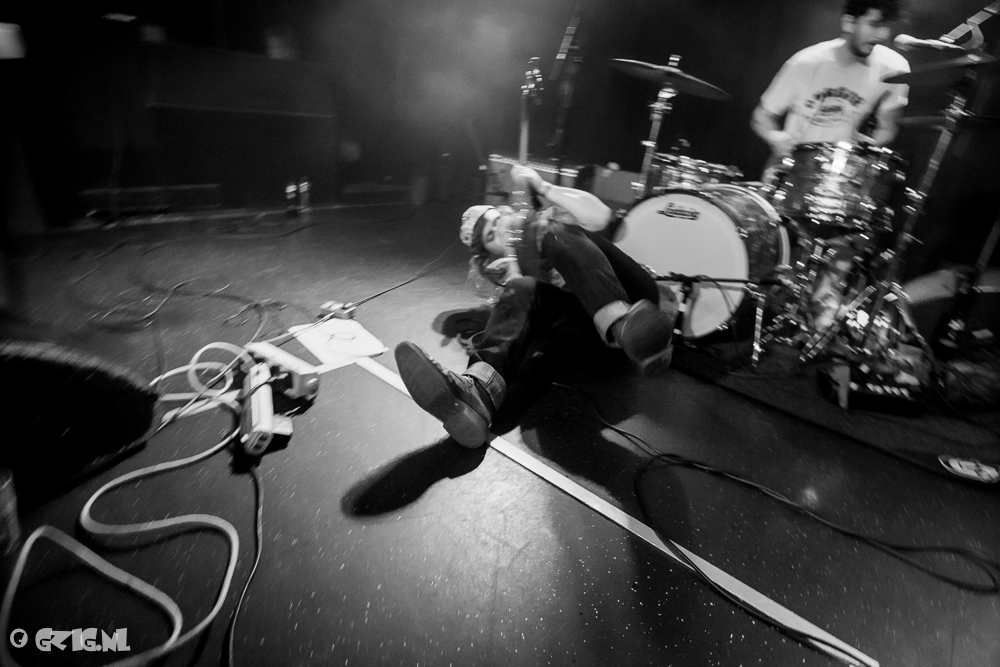Burger Records helps shine light on the new wave of garage-rock and punk bands
By Mia Pearson, Music editor.
You can now find Ramones t-shirts hanging on Forever 21 clothing racks, mass-produced Dead Kennedys band patches on backpacks, and Reagan Youth stickers on that 14-year-old’s laptop. Those high-energy, three-chord punk bands that rattled the bedroom walls of many a ‘80s angry teenage misfit were seemingly discarded by the time the ‘90s hit. Didn’t punk die and get replaced by shoegaze and grunge bands willing to go the extra chord?
A few years ago, I interviewed a band called FIDLAR–that stands for Fuck It, Dog. Life’s a Risk. That interview kind of changed my life–no, for real, it did! I started listening to so much FIDLAR (way before they were popular, by the way) that the effect was contagious, and all my friends who hung out with me in close proximity were bitten by the FIDLAR bug. FIDLAR mix the quick adrenaline of punk with the catchiness of pop and wrap up each song with some cleverly crafted slacker lyrics. FIDLAR was the gateway band for my discovering the heavenly roster of Fullerton, California’s Burger Records.
The community of bands united under the Burger bun mostly share the same attributes—their DIY attitude often turns their first EP into a lo-fi release brimming with power. Most of the bands have that punk foundation: Together Pangea, Audacity, The Garden, The Lovely Bad Things, and Cherry Glazerr, to name a few. But all these bands have branched off way beyond that traditional punk sound. The New York Times, in its article “Garage Rock’s Latest Nerve Center,” calls this Burger revolution the “fourth-wave of garage rock,” and cited garage and punk bands of the past like The Cramps and the Mummies as those who made-up the former waves. This fourth wave, the article claims, is jutting out in directions hard to predict: weirder and more daring than before. Whereas the bands’ sound may not mirror the punk bands of the ‘80s perfectly, their attitudes certainly do. DIY shows thrown in skate parks, basements, or all-ages venues are where the community meets, trashes and grows.
Burger was founded by Sean Bohrman and Lee Rickard, who run Burger Records out of the back room of their strip mall storefront. They started releasing cassette tapes of L.A. bands they knew, as well as their own music, and opened the Burger store in 2009. The norm in L.A’s urban sprawl is for youth to have crappy old cars that still have cassette players, comprising the cassette-buying market Burger tapped in to.
Whatever the sound, these SoCal punks have created a scene and a feeling unlike any in other cities, way different from the musical waves before them. I think Burger are putting out some of the best stuff in modern music. Maybe there’s something in the air, or maybe music grows better under the sun, but man it’s a lot of… fun.
